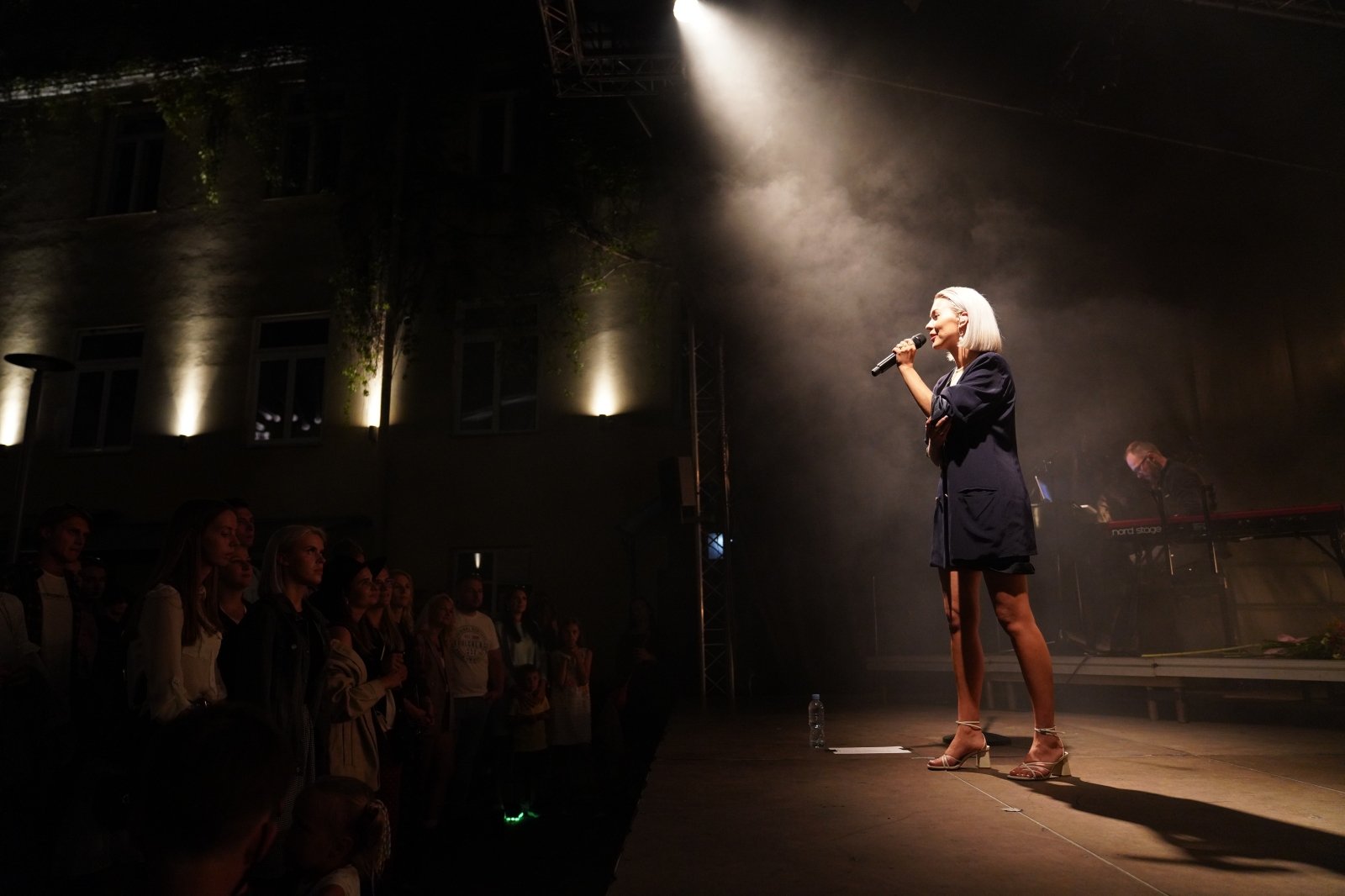
A carefully planned proposal of gradual reopening of the cultural and creative sector presented to the Lithuanian Ministry of Culture
The Lithuanian Ministry of Culture was presented with a carefully planned initial proposal which includes a list of very specific goals of the sector. Member of the steering group, Director of the State Youth Theater, Mr Audronis Liuga draw attention to very special characteristics of the sector in comparison to a hair salon or shop. To start operating the culture sector needs more time, efforts and preparation work than other spheres of activities. “To ensure safety of rehearsals, organization of cultural and educational activities including virtual ones, we need to be sure regarding free testing of the entire cultural sector. Cultural workers should be included in priority group of vaccination like members of educational sector. We ask to grant priority of testing and vaccination to institutions of ministerial and regional subordination, NGOs, also those who have status of art creator and freelancer art creator. Cultural workers even if they work on the Internet based projects, should plan rehearsals like teachers, and be in close contact with their colleagues, some of them work at several organizations. Vaccination would prevent spreading virus to different groups of people. Vaccination of the cultural workers has been launched but part of the sector gets under discrimination. They lost their incomes and are asked to pay for testing. Testing and vaccination of both – employees of cultural institutions and independent creators – should be free during the period of Covid-19 pandemic because this is the basic right of all creators which guarantees safe collaboration of both groups. As for now free testing is provided only to employees of the Governmental institutions and nobody can say anything firm about vaccination prospects,” stresses Mr Audronis Liuga.
Event organizers estimated that in 2020 they had four months of outdoor event organization and two months of indoor event organization with 50 percent of auditorium of the latter. Similar situation and prospects should be said about 2021 or even 2022. “There is no any substantial support allocated by the Government apart of compensation and subsidies for employees. When in public we hear talks with examples of other countries like Germany, most often nobody mentions the German Event Cancelation Fund of 2.5 billion Euros. Austria, Switzerland and the Netherlands allocated for the same purpose 300 million Euros. In 2021 Switzerland and Denmark proposed event postponement insurance plan which sees to cover 100 percent of lost incomes. We should speak not only about the gradual reopening of the cultural sector, full compensation of testation, renewal of the event postponement compensation regulations, but also about tax exemption for a certain period after pandemic”, stresses Mr Martynas Tyla, Chairman of Association “Music Awards of the Year”.
According to the member of the steering group of cultural associations it would be a mistake to bond only to the rate of new Covid-19 cases per 100 000 population and Covid-19 testing percentage. We should take into account evaluation of vaccination results as Switzerland and Denmark do, as well as results of separate regions to minimize social exclusion in regions as situation there is out of control. The world speaks about application of vaccination passport for events. “People’s safety is our task and duty to avoid harsh and strict restrictions of quarantine. It is time to enter into a new level of pandemic related decisions, easier restrictions, rise everyone’s feeling of responsibility and work with people’s consciousness. When coordinated cultural activities are organized under controlled conditions it would not allow the virus to spread and grant us the desired broader variety of safe experiences, meetings and events. It is quite a time to respond to people’s request for a different quality of life. We presented a detailed proposal to the state institutions and look forward to organizing a new working group in coordination with the Ministries of Economics and Innovation, Culture, Health Care and Finance and cultural, creative industries,” says Ms Živilė Diavara, Chief of Board, National Association of Creative and Cultural Industries.
Cultural and creative sector was hit very hard by the pandemic. Social distancing measures and other restrictions applied for cultural activities sharply hit cultural and creative industry sector, the drop in revenues put the financial sustainability of the sector at risk. In 2020, the cultural and creative economy lost approximately 31% of revenues. The venue-based sectors (such as performing arts, live music, festivals, cinema, etc.) are the most effected by Covid-19 measures. The turnover loss of the creative and cultural sector in Lithuania reaches from -60% to -90% (cinemas, theaters, concerts, events, etc.)
Audronis Liuga, Director, State Youth Theater
Živilė Diawara, Chair of the Board, National Association of Creative and Cultural Industries
Martynas Tyla, Chair of Association “Music Awards of the Year”
Raimundas Bilinskas, Lithuanian Film Projectionist Association
Audrius Dūdėnas, Association of Film Industry
Gintarė Masteikaitė, Association of Non-governmental Performing Art Organizations
Valdas Petreikis, Chair of Association of Events Industry
Algirdas Barniškis, Lithuania Festival Alliance
Raimundas Balza, Chair of the Board, Association of Lithuanian Museums
Diana Stomienė, President, Association of Lithuanian Art Galleries
Jonas Tertelis, Chair of the Board, Association of Cultural Managers
Agnė Begetė, Director, Lithuanian Neighbouring Rights Association
Vaidotas Stackevičius, Chief, Lithuanian Music Business Association
Romas Matulis, President, Lithuanian Cultural Centers Association

